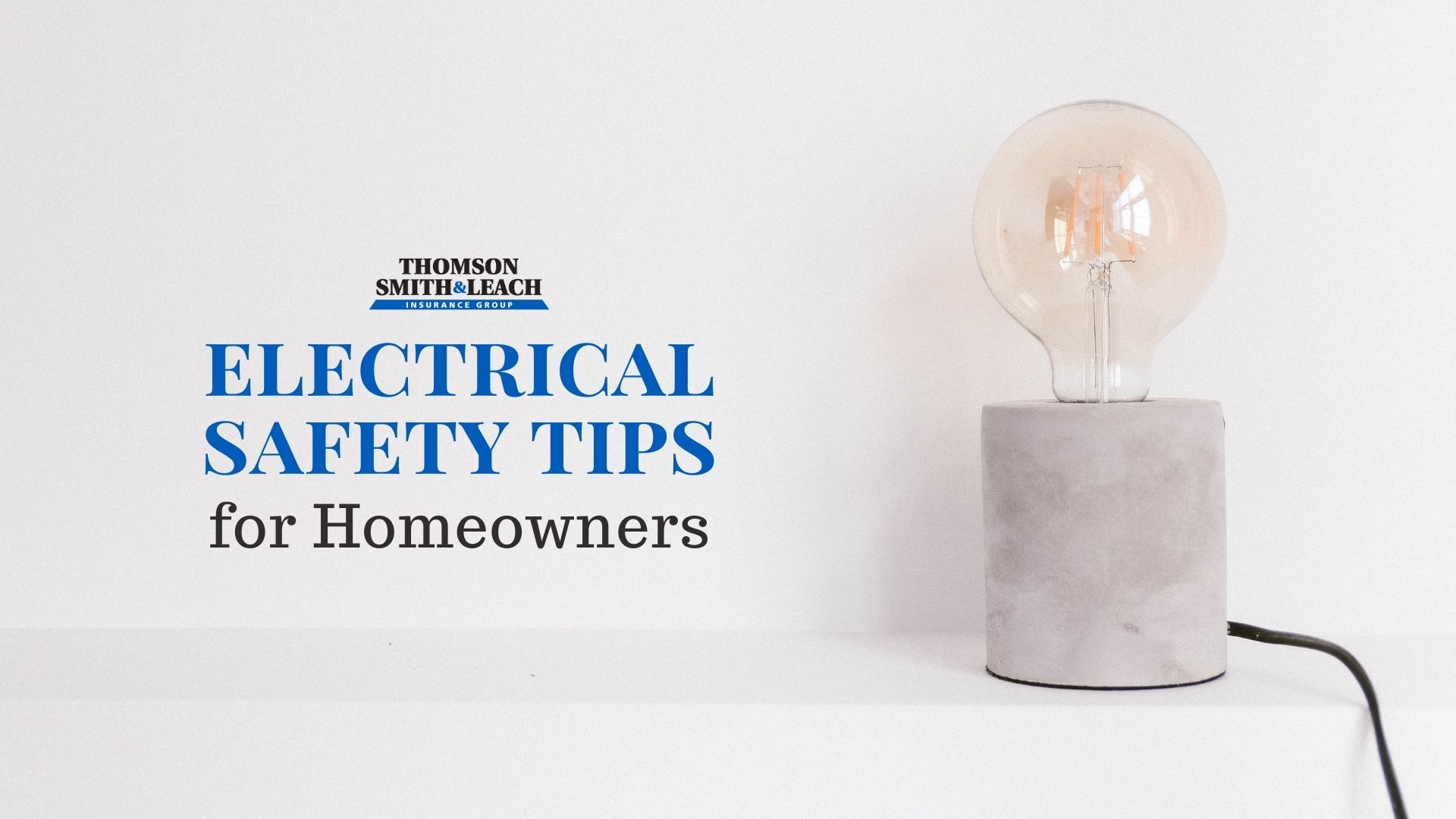May is National Electrical Safety Month. This is the time of year to ensure your home wiring systems are in accordance with the safety code. According to the National Fire Protection Association, there were 46,700 home fires attributed to faulty electrical wiring between 2015 and 2019. This makes electrical safety at home crucial. Here are some DIY safety tips to protect your family against electrical hazards.
6 Home Electrical Safety Tips
1. Never Overload Outlets
Multi-outlet strips are convenient for providing multiple outlets within easy reach. However, just because there are six or so outlets don’t mean you can safely use all of them at once. The strip itself is plugged into an outlet, meaning all devices plugged into that strip draw power from a single source. This can lead to overheating and an ampere overload. Try not to use more than half of the available outlets at any given time.
2. Unplug Unused Devices
If you’re not using a device or appliance, unplug it; it only takes two seconds. As long as the appliance is plugged in, the outlet will continue to supply energy. Appliances and devices can malfunction even when turned off. If this occurs while plugged in, it may lead to overheating, resulting in a fire. In addition, keeping the device plugged in leads to phantom drain, where the unused appliance uses a small amount of power. Unplugging to eliminate phantom drain can save you as much as $200 annually on energy costs.
3. Let Your Appliances and Devices Breathe
Just about all electrical appliances and devices contain vents. This allows air to circulate and heat to escape. Keep the vented areas open. To ensure adequate breathing room, adhere to the following:
- Maintain several inches between the appliance and the wall
- Maintain several inches between the appliance and furnishings/upholstery
- Do not position appliances side-by-side
- Keep all flammable materials away from plugged-in devices
4. Use the Correct Wattage
Occasionally, you may have to replace a bulb on a refrigerator or oven. Look up the wattage specifications and never use a bulb with a higher wattage. In other words, never use a 75-watt bulb if the appliance specifies a 45-watt limit. If you cannot find information on the bulb replacement, then it’s best to stick with a 25-watt bulb or lower.
5. Switch to LED Bulbs
Invest in transitioning to LED bulbs for all or most of your light fixtures. Traditional incandescent light bulbs convert electricity into heat and then the heat into light. LED bulbs, by contrast, convert electricity straight to light. This prevents heat accumulation and drastically minimizes the risk of a blowout and potential fire. Traditional bulbs also contain mercury, a poisonous fume that can be hazardous if a leakage or blowout occurs.
6. Minimize Extension Cord Use
Extension cords are convenient, but they aren’t without their risks. First, never plug two separate extension cords together. You also shouldn’t use extension cords as a permanent fixture. Apart from being a tripping hazard, it can also pose a fire risk if the cord becomes frayed and exposes the wires. Also, don’t conceal cords by placing them under rugs or mats. Rugs and mats are flammable and can cause a fire to spread if the wiring is exposed and creates a spark.
Read also: How to Prevent House Fires
Protect Your Home from Electrical Hazards
Even with diligent care, worst-case scenarios can still happen. In this case, a fire can still occur and create immense damage. Homeowner’s insurance provides a financial safeguard in the event of such unforeseen disasters. Give Thomson Smith & Leach Insurance Group a call to find a homeowner’s insurance policy in Louisiana that’s right for your home type and needs.
Resources:
NFPA report – Home Electrical Fires
Incandescent vs. LED Light Bulbs: The Differences Explained | Ygrene


Recent Comments